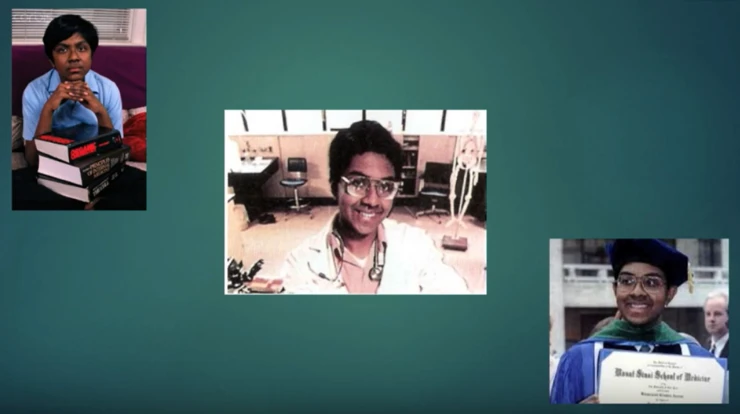For fans of 90s television, the name “Doogie Howser” conjures up images of a teenage prodigy mastering medicine with charm and brilliance. But what if fiction became reality? Enter Dr. Balamurali Ambati, a medical prodigy whose real-life achievements outshine even the wildest Hollywood scripts. At the astonishing age of 17, Dr. Ambati earned the Guinness World Record as the youngest doctor in history. His story is one of unparalleled genius, relentless dedication, and an unwavering passion for healing.
Early Life and Education
Dr. Ambati’s journey began with extraordinary talent. By age four, while many were learning to read, he was solving calculus problems—a feat that hinted at his prodigious intellect. Unlike the traditional U.S. educational pathway, which spans 12 years from kindergarten to high school, Ambati accelerated through schooling, graduating high school at just 11 years old. By 13, he had earned a college degree, defying expectations and redefining what academic progression could look like.
This rapid advancement starkly contrasts with the standard U.S. system, where students typically complete high school at 18 and undergraduate degrees by 22. Ambati’s brilliance not only redefined norms but also showcased the possibilities of tailored education for gifted individuals.
Medical School and Breaking Records
At an age when most teenagers are adjusting to high school life, Dr. Ambati was donning a white coat at Mount Sinai School of Medicine, one of the most prestigious institutions in the U.S. The rigor of medical school, known for its daunting curriculum and competitive admissions, was no match for Ambati’s intellect and work ethic. His ability to excel in this environment at such a young age captured global attention.
In 1995, Dr. Ambati secured the Guinness World Record as the youngest doctor, a title that highlighted not just his genius but also the profound dedication required to navigate medical school at an unprecedented pace.
Advancing Medicine with Innovation
Dr. Ambati’s career trajectory led him to specialize in ophthalmology, a field that demands an intricate understanding of the human eye. After completing medical school, he pursued residency and further training, becoming a distinguished figure in the field. His research contributions, particularly in corneal transplants and laser surgeries, have revolutionized patient care, aligning him with the innovative leaders of U.S. medical institutions.
Facing Challenges and Changing Perceptions
Breaking norms often invites skepticism. Dr. Ambati faced doubts about his maturity and readiness, particularly in a field where age often correlates with experience and authority. Comparisons to fictional characters like Doogie Howser, while flattering, also added pressure to live up to public expectations. Yet, Ambati’s resilience and results silenced critics, proving that age is no barrier to excellence.
Insights from the Prodigy
For Dr. Ambati, the motivation to pursue medicine stemmed from a deep-seated passion for helping others, coupled with a supportive family environment that nurtured his talents. He often advises aspiring physicians to stay curious, remain committed to their goals, and embrace the challenges of medicine—a message that resonates with students navigating the rigorous U.S. system today.
Rethinking the Traditional Path to Medicine
The traditional path to becoming a doctor in the U.S. involves a lengthy timeline: four years of undergraduate studies, four years of medical school, and additional years of residency and fellowship. Dr. Ambati’s journey challenges this timeline, demonstrating that with the right support and exceptional talent, acceleration is possible without compromising quality.
Globally, educational systems that prioritize flexibility and individualized pacing, like those Ambati benefited from, contrast sharply with the structured U.S. model. His story invites reflection on how systems can adapt to nurture extraordinary talent.
A Lasting Legacy
Dr. Balamurali Ambati’s story is more than a tale of genius—it’s a testament to the power of ambition, resilience, and innovation. His contributions to medicine and his trailblazing journey inspire professionals and students alike to rethink possibilities. As we marvel at his achievements, let’s also consider how to better support gifted individuals within traditional systems. Who knows how many other real-life “Doogie Howsers” might be waiting for their chance to shine?
References
- Guinness World Records: Youngest doctor ever.
- Mount Sinai School of Medicine: Historical admission trends and academic rigor.
- Research contributions by Dr. Balamurali Ambati in ophthalmology journals.
- Comparative studies on global educational systems and their impact on gifted students.

